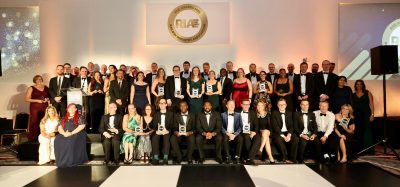Why rail can’t afford to dismiss diversity
Posted: 12 July 2024 | Nina Lockwood - Intuitive Talent Solutions | No comments yet
For Global Railway Review’s latest Track Insight: Talent, Nina Lockwood, CEO of Intuitive Talent Solutions, provides insight into the evolving challenges and strategies in talent acquisition within the rail industry.


The railway network has been a key pillar of the UK economy since the 19th century. Having been instrumental to the Industrial Revolution, the industry continues to make a crucial economic contribution to this day: in 2019, the rail sector accounted for an eye-watering £43 billion of UK GDP.
UK rail is also, of course, a major employer and facilitator of employment in other industries. In the same report from 2019, it was found that the industry supported more than 710,000 jobs, including in operating companies, infrastructure companies, the wider supply chain and beyond.
However, with much of UK rail’s existing workforce approaching retirement, the industry faces a burgeoning skills gap. This has been the source of much debate within the sector in recent years – but one aspect that must not be ignored is the importance of diversity in addressing the problem.
Rail’s skills shortfall
According to NSAR’s 2023 Rail Workforce Survey, the average age of the UK rail industry’s workforce now stands at 45 – up from 43 back in 2018. By 2030, NSAR warns, the sector faces a “critical loss of knowledge and experience”, with as many as 75,000 expected to leave UK rail through retirement and other forms of attrition. Over-50s now account for a third of railway workers.
This worsening skills shortage is already hindering the ability of the railway industry to deliver on key projects. NSAR has forecast that “missed opportunities” arising from this shortage could add £800 million to UK rail’s personnel costs, with increased wage inflation pushing up project costs and jeopardising their financial viability.
Part of the problem for UK rail is that is faces increased competition in the labour market, with other sectors seen as offering both higher wages and a more attractive working environment. School and college leavers, as City & Guilds pointed out in a report from 2022, tend to have a negative perception of rail compared with other industries.
As a result, the sector remains heavily male-dominated, with women comprising only 16% of its labour force, and predominantly white too: while the total UK workforce is 81.5% white, on the railways the proportion stands at 87%. All this indicates that the sector is failing to attract women and ethnic minority workers – precisely what it needs to do if it’s to address its skills shortage.


Getting back on track
Careers in rail have a lot to offer: fulfilling and rewarding work, a huge variety of jobs on offer from engineering to marketing, and the chance to work in an industry that’s vital both to the economy and to connecting communities across the country. You’d think, therefore, that more people would be beating down rail employers’ doors in search of jobs – but it seems they aren’t. Why?
A City & Guilds/NSAR report from 2020 highlighted a number of problems regarding recruitment and retention, including limited opportunities for career progression, the rail sector’s reliance on short-term, insecure contracts, unsociable working hours and the adverse impact of Brexit on recruiting workers from the EU to fill gaps in the labour force.
Moreover, there is a persistent image problem that continues to dog the industry. Too many people, particularly those from marginalised backgrounds, still harbour concerns that the railway industry doesn’t offer them a supportive and welcoming working environment – and this, quite understandably, deters a lot of them from pursuing careers in rail.
Regrettably, it’s not hard to see why people think this way. The industry has, undeniably, been much slower to change than it should have been. Though UK rail is making genuine and concerted efforts to recruit from a more diverse talent pool today, there still remains much more to be done to make the sector’s workforce truly representative of the public it serves.
Not just a tick-box exercise
We need to think about what we can do as an industry to ensure that people from a wider variety of backgrounds consider it as a career choice. If we fail in this, then we risk failing in addressing the skills shortage and bringing in the talents that UK rail needs so urgently.
In particular, we need to emphasise that there really is a place for everyone in the rail industry – whether it’s young people just leaving college or university, or those already in mid-career who want a change of scene and purpose.
As an industry, we need to treat diversity as a moral necessity and a legal duty rather than a mere formality or tick-box exercise. We need to recognise that our own lethargy when it comes to change has meant that we’ve missed out on diverse talent at all levels. We must show that we are serious about building trust among people from underrepresented backgrounds.
I often say, you have to see it to be it. What I mean by this is that if you’re from an underrepresented community, it makes a huge difference to see people like yourself leading from the front, because this gives you reason to believe that there is a place for you as well.
This is something, I think, that the rail industry has to take seriously. But the rewards of making the sector more diverse – benefiting from a wider variety of perspectives and fresh ideas – are potentially huge. It would also put us in a much better position to tackle the substantial challenges we face over the coming years.


Related topics
Digitalisation, Global Railways Review's Track Insight: Talent, Sustainability/Decarbonisation








